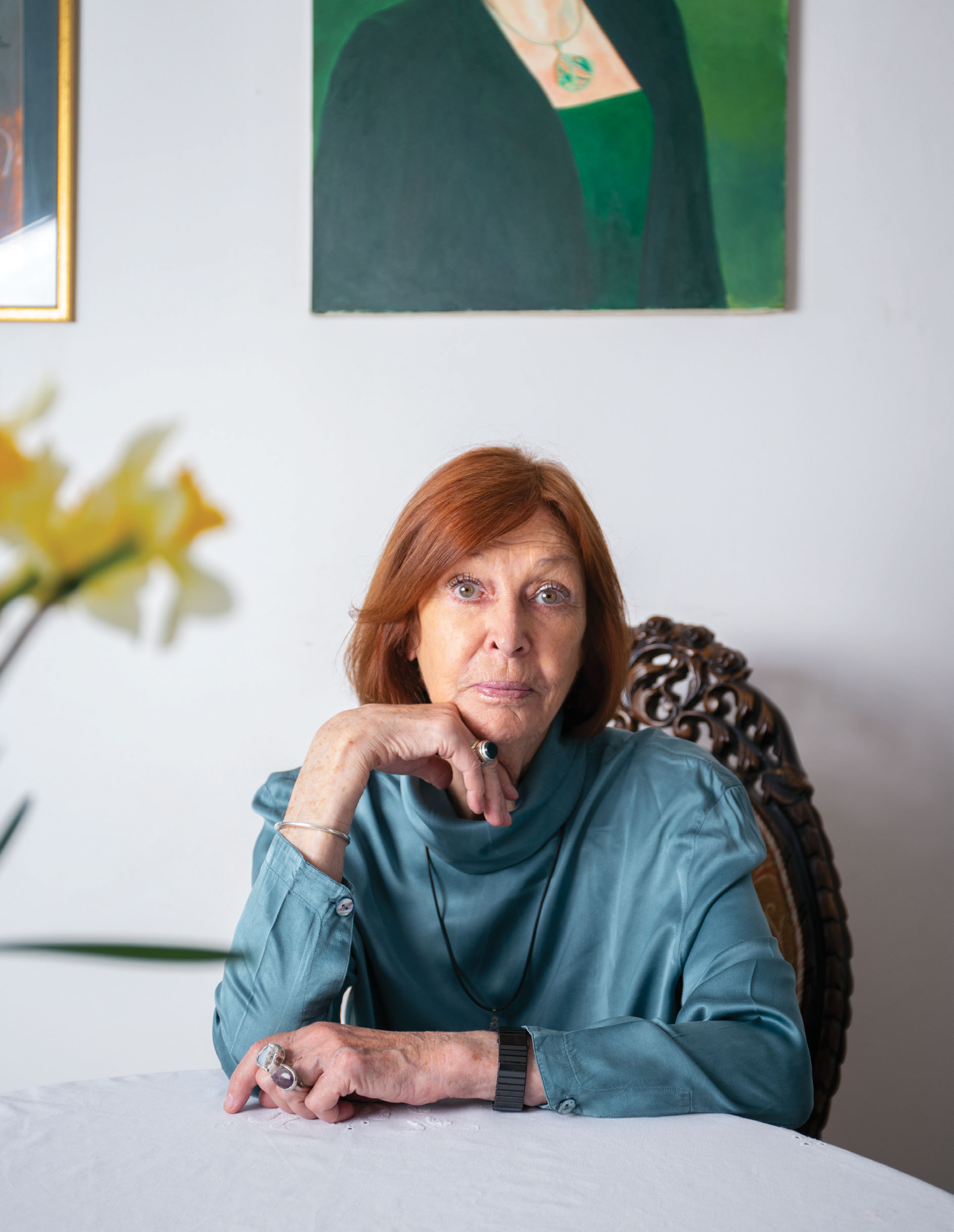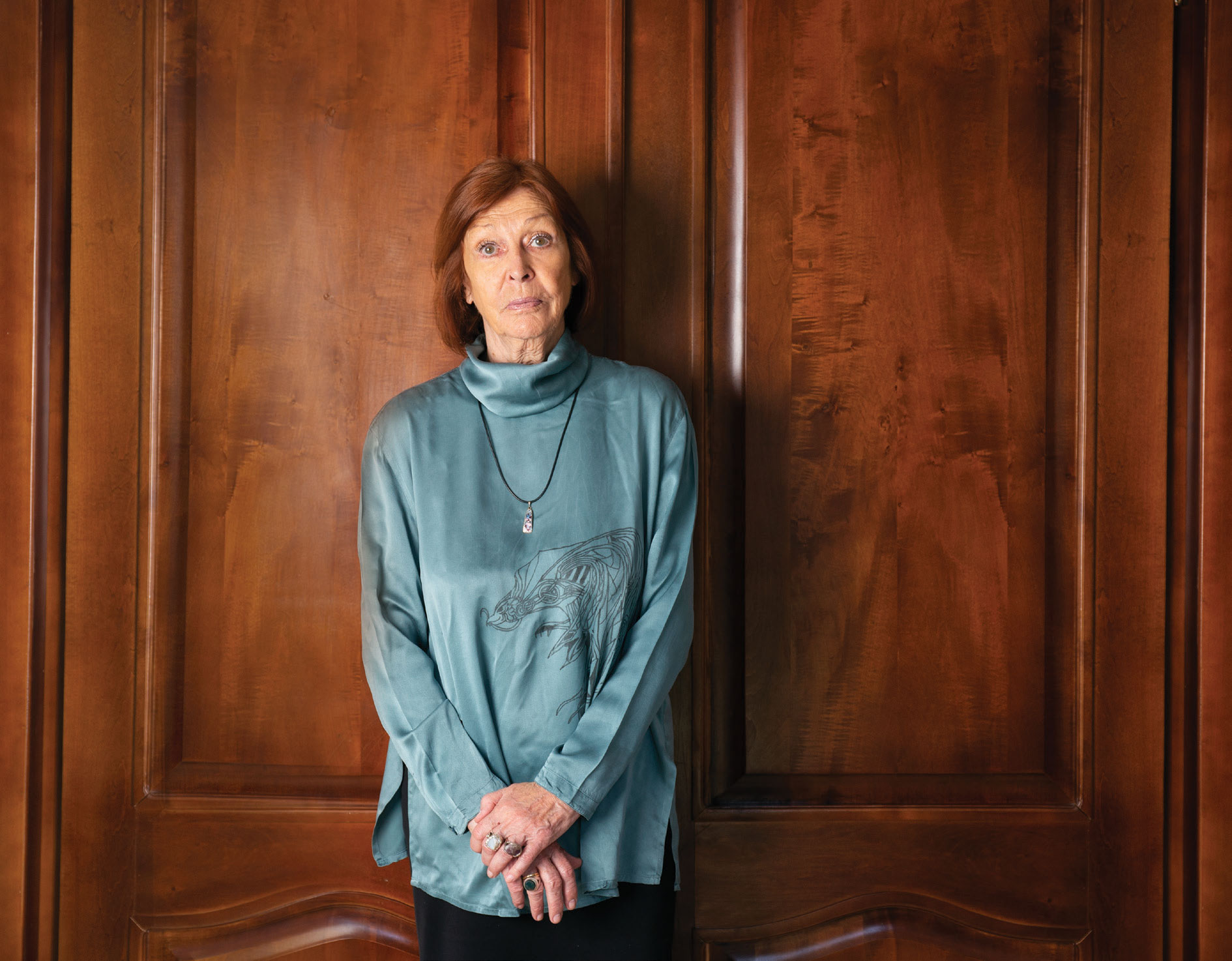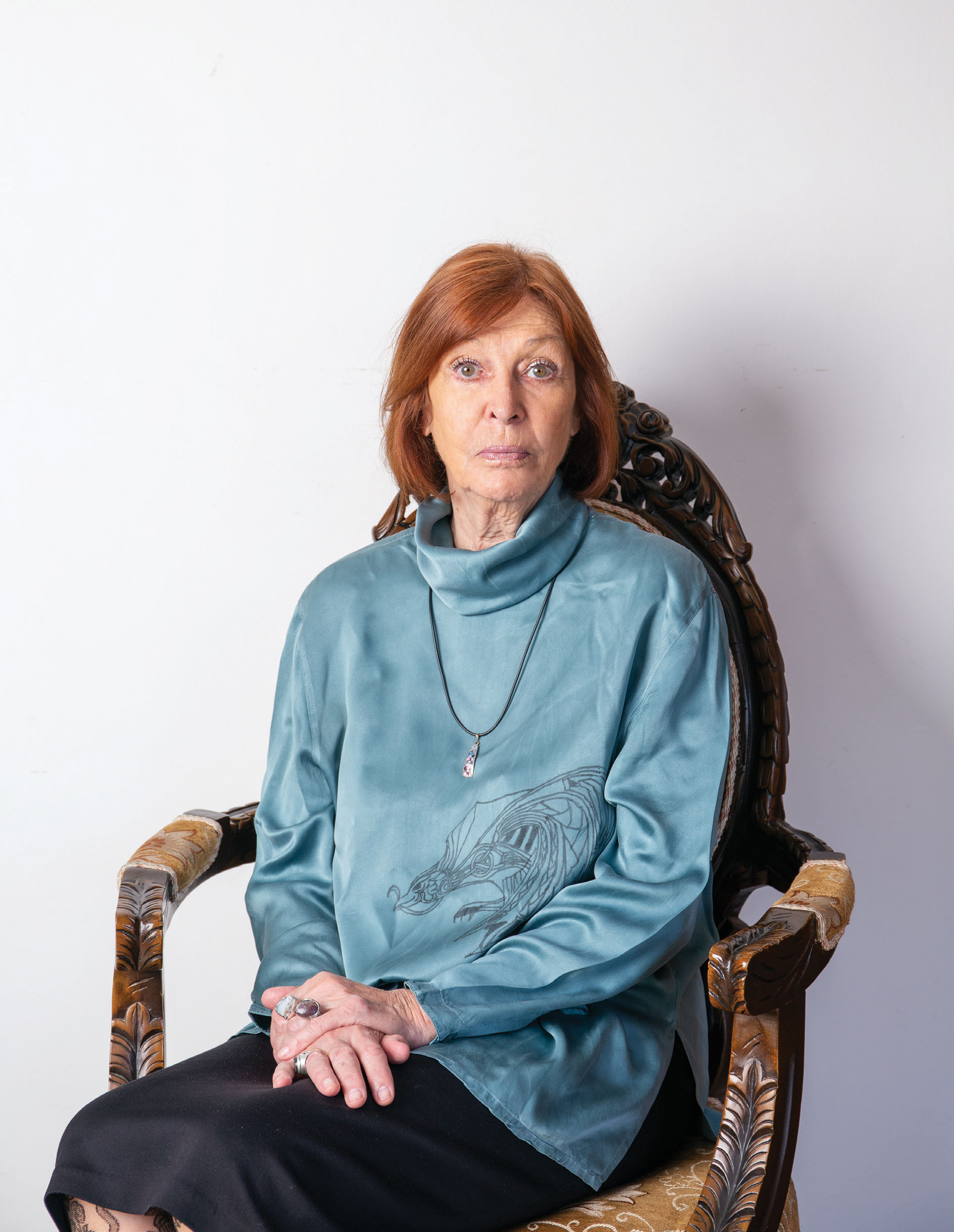Over the past hundreds of years, women have been fighting for their rights. To this day, the fight continues. People like Renate Winter are constantly working to help women take back their rights. Winter is the former president of the international association of youth and family court judges and a consultant for UNODC among other international bodies and a judge for over forty years. She has been fighting for women’s and children’s rights since the beginning of her career. She has been working with UNODC especially on terrorist matters concerning children. Currently she is team leader of an EU project in Georgia „EU4 Justice”.

In this interview, I learned about ms. Winter’s life-changing experiences in her field of work and her thoughts about the current situation of women and children in the country of Georgia. In addition, she tells us about the progress she’s observed and what could be improved.
Over the years, a large portion of your work has been about women’s justice. You feel very passionate about the process. Can you elaborate on this?
I’ve been working as a judge more or less my whole life. When you work as a judge, you find out very quickly that those who always have the heaviest burden to bear are the women and the children. For me, it was highly important to find out more about women’s problems, where these problems come from, and how these problems can be fought against.
And concerning women, especially our girls, you find out that, in whatever century, culture, tradition, a woman has difficulties to be able to become a person in her own right, or at least not to be beaten up regularly by father, brother, husband, son even.
So, wherever I am, even in Georgia, I keep repeating, „please give education to your girls”. But, unfortunately, every religion, every non-democratic country, even in democracies, is very often not in favor for education for girls. And the only way one can overcome the system and protect oneself as a woman is to learn, have an education, and have a job.
Do you think the country of Georgia, as a whole, has fallen behind in progress in terms of women’s rights?
No. I am already old and had to start in a very different situation and environment than the girls here and now. The younger generation, like yours, is in an entirely different situation. They have by far more information they can access all the time almost everywhere in Georgia. However, if you go just a bit further outside of Tbilisi for instance to regions with minorities, there you will see a different reality, a completely different way of dealing with children and women. In some minority communities, men have not one but four wives and the 4 wives have to work, not many of them have an education.

Different governments, no matter which one at the moment at power, should understand that education is essential. I furthermore think that the women in this country are strong enough to get an education for their girls. One step the government should take, the minister of education especially, is to concentrate on the education for farmer girls as well in remote areas, for instance.
What kind of progress have you seen in other countries that you have worked in that you have yet to see in Georgia?
Have you ever thought about women with disabilities? Women with disabilities find it extremely hard to live in Georgia. They often feel that they are good for nothing and that they are a burden for their family. They cannot be married off, and if they are married, they think or are made think that they are a burden for the husband, the children, the inlaws. Georgia can do a lot more in this area. In other countries, one can see that if there is more education and more assistance to women with disabilities, they can develop and have more self-esteem, can even care for themselves and are not pitied in the best case, despised and mistreated in the worst. This policy is missing in Georgia.
What do you think are the reasons for this?
I think that there’s no budget allocation for these females (nor males by the way). You need to take some money into your hands to make the situation of the children with disabilities better. Because if they are taken care of, and they are not thought of as means for charity, if they are assisted in the contrary, they can develop. Women with disabilities will learn and grow. And they deserve to be invested in. Ministries and the government have to make the calculation to understand that this investment is not lost money because women with disabilities who can look after themselves don’t cause social costs. If a finance minister, or a minister of education, or a minister of health would say, ‘what can we expect from such women? Why should we invest in them?’ it would be a wrong way to tackle the problem and it would be highly inhuman on top of it.
With the same ideas circulating in the country, and no room for new ones, to what extent is it a major problem for families to not let girls go to universities or go to other countries?
The already educated women in the families will look after their daughters and provide their daughters with possibilities to study. What we need, are jobs for their daughters, and not only for their sons. There is quite a lot of potential in the women of this country, and you can see it everywhere. I’m working with a team with only one man – all the others are women. It works extraordinarily well. All of the ladies are educated, have families, and have to look after their family, but it is a matter of constant organisation and planning to bring all to one table. But it is possible. And women are pretty good at that; I must say, better than men.
I do think the problem that you have with education of girls is not so much concentrated in the cities. In the cities, you have the big problem of there not being enough work. It also isn’t good if every girl would be sent to university (neither every son by the way) because we need practical knowledge in the country! You have a lot of female doctors, but you do not have a female plumber. You do not have a female woodworker or female electrician, and you need them to keep a balance in the evaluation and solution of problems at work. We have had a significant change of situation in my country, Austria, concerning these problems. We have had two world wars, where we have been heavily affected with lots of killed soldiers, and after those two wars, it’s always been the same – no men around for work and restauration. Either they were dead or wounded or sick. So the women had to take over their jobs and were perfectly capable do so. Therefore, we have plumbers, we have artisans, in every profession there are women. And this is what is needed in Georgia as well, not only doctors. Of course, you need female doctors. Of course you need female advocates, female judges, women as teachers, professors, members of academia, but you need women as well in all the other professions.

Can you tell me about an experience that has changed your life? An experience in your career that you consistently look back on?…
I had to deal with children in many countries. But only when I learned about child soldiers, I really understood the horror of war and the way to define guilt. That has changed me because then, I could understand the difference between a soldier and the one who is telling the soldier what to do and the difference of the level of responsibility in both cases.
The first case of a child soldier I had to deal with happened in a war-torn country after a long civil war with all the cruelties you can imagine. I had to deal with a fifteen-year-old boy who murdered a soldier after the war, when there was already peace. Because he was so handsome, they called him ‘angel face’. A murderer with an angel face is something shockingly strange, isn’t it? When dealing with the child, I learned that he was taken away from his family by soldiers at the age of seven. From that moment on, he was the mascot for the the soldiers. He learned everything that they knew. Maiming, arson, stealing, robbing, killing, everything – all by the age of ten. The war ended, but he has learned only this, nothing else. And he had learned that because he was with the group of soldiers that had won, the rebels, in this case, and thus he was seen as a war hero and not as a criminal. He killed a soldier from the former enemy in peace time. When the police took him, he said, ‘but you cannot take me. I am a war hero.’ to deal with such a person who doesn’t even understand what he has done or who he has become is very difficult. That changed my thinking. When you go through something like this as a judge, you have to speak with the words that the one with whom you speak will understand. To be able to do that, you have to understand not only the law. That was a situation that changed my behavior towards people in conflict with the law.
And finally, what is a piece of advice that you would give yourself when you first became a judge?
The very first job I had was to function as a juvenile judge in a penal court for children. Some things would maybe have been different if I had been in an adult court first. In a children court the very first thing I said to myself was, “First, you listen.” and the second thing I said to myself, and especially because I was in the children’s court, “There is no lost child.”
The most important job for a judge, especially a penal judge and a family judge, is to listen because it is equally important to know why something has happened as that it has happened.
